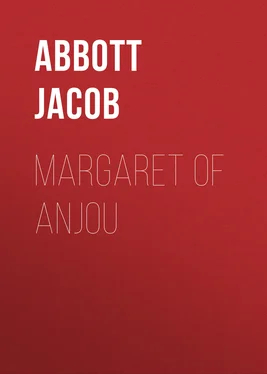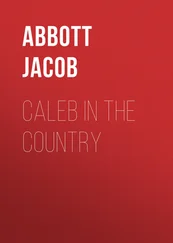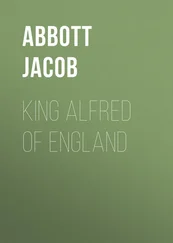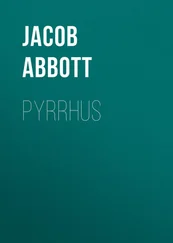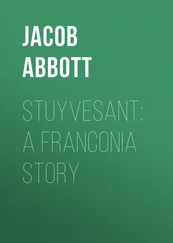Jacob Abbott - Margaret of Anjou
Здесь есть возможность читать онлайн «Jacob Abbott - Margaret of Anjou» — ознакомительный отрывок электронной книги совершенно бесплатно, а после прочтения отрывка купить полную версию. В некоторых случаях можно слушать аудио, скачать через торрент в формате fb2 и присутствует краткое содержание. Жанр: foreign_prose, История, foreign_edu, foreign_antique, на английском языке. Описание произведения, (предисловие) а так же отзывы посетителей доступны на портале библиотеки ЛибКат.
- Название:Margaret of Anjou
- Автор:
- Жанр:
- Год:неизвестен
- ISBN:нет данных
- Рейтинг книги:3 / 5. Голосов: 1
-
Избранное:Добавить в избранное
- Отзывы:
-
Ваша оценка:
- 60
- 1
- 2
- 3
- 4
- 5
Margaret of Anjou: краткое содержание, описание и аннотация
Предлагаем к чтению аннотацию, описание, краткое содержание или предисловие (зависит от того, что написал сам автор книги «Margaret of Anjou»). Если вы не нашли необходимую информацию о книге — напишите в комментариях, мы постараемся отыскать её.
Margaret of Anjou — читать онлайн ознакомительный отрывок
Ниже представлен текст книги, разбитый по страницам. Система сохранения места последней прочитанной страницы, позволяет с удобством читать онлайн бесплатно книгу «Margaret of Anjou», без необходимости каждый раз заново искать на чём Вы остановились. Поставьте закладку, и сможете в любой момент перейти на страницу, на которой закончили чтение.
Интервал:
Закладка:
Arrangements made. Guards.
Very many detailed and full accounts of these combats have come down to us in the writings of the ancient chroniclers. I will here give a description of one of them, as an example of this mode of trial, which was fought in the public square in front of King Richard the Second's palace, the king himself, all the principal nobles of the court, and a great crowd of other persons being provided with seats around the area as spectators of the fight. The nobles and knights were all dressed in complete armor; and heralds, and squires, and guards were stationed in great numbers to regulate the proceedings. It was on a bright morning in June when the combat was fought, and the whole aspect of the scene was that of a grand and joyful spectacle on a gala day.
Great concourse of people.
It was estimated that more people from the surrounding country came to London on the occasion of this duel than at the time of the coronation of the king. It took place about three years after the coronation.
The parties.
The parties to the combat were John Anneslie, a knight, and Thomas Katrington, a squire. Anneslie, the knight, was the complainant and the challenger. Katrington, the squire, was the defendant. The circumstances of the case were as follows.
Nature of the quarrel. Castle lost.
Katrington, the squire, was governor of a castle in Normandy. The castle belonged to a certain English knight who afterward died, and his estate descended to Anneslie, the complainant in this quarrel. If the squire had successfully defended the castle from the French who attacked it, then it would have descended with the other property to Anneslie. But he did not. When the French came and laid siege to the castle, Katrington surrendered it, and so it was lost. He maintained that he had not a sufficient force to defend it, and that he had no alternative but to surrender. Anneslie, on the other hand, alleged that he might have defended it, and that he would have done so if he had been faithful to his trust; but that he had been bribed by the French to give it up. This Katrington denied; so Anneslie, who was very angry at the loss of the castle, challenged him to single combat to try the question.
Reason for this mode of trial.
It is plain that this was a very absurd way of attempting to ascertain whether Katrington had or had not been bribed; but, as the affair had occurred some years before, and in another country, and as, moreover, the giving and receiving of bribes are facts always very difficult to be proved by ordinary evidence, it was decided by the government of the king that this was a proper case for the trial by combat, and both parties were ordered to prepare for the fight. The day, too, was fixed, and the place—the public square opposite the king's palace—was appointed. As the time drew nigh, the whole country for many miles around was excited to the highest pitch of interest and expectation.
The company assemble. The combatants appear.
At the place where the combat was to be fought a large space was railed in by a very substantial barricade. The barricade was made very strong, so as to resist the utmost possible pressure of the crowd. Elevated seats, commanding a full view of the lists, as the area railed in was called, were erected for the use of the king and the nobles of the court, and all other necessary preparations were made. When the hour arrived on the appointed day, the king and the nobles came in great state and took their places. The whole square, with the exception of the lists and proper avenues of approach, which were kept open by the men-at-arms, had long since been filled with an immense crowd of people from the surrounding country. At length, after a brief period of expectation, the challenger, Anneslie, was seen coming along one of the approaches, mounted on a horse splendidly caparisoned, and attended by several knights and squires, his friends, all completely armed.
The horse excluded.
He stopped when he reached the railing and dismounted from his horse. It was against the laws of the combat for either party to enter the lists mounted. If a horse went within the inclosure he was forfeited by that act to a certain public officer called the high constable of England, who was responsible for the regularity and order of the proceedings.
Anneslie, having thus dismounted from his horse with the assistance of his attendants, walked into the lists all armed and equipped for the fight. His squires attended him. He walked there to and fro a few minutes, and then a herald, blowing a trumpet, summoned the accused to appear.
Summons to the accused.
"Thomas Katrington! Thomas Katrington!" he cried out in a loud voice, "come and appear, to save the action for which Sir John Anneslie, knight, hath publicly and by writing appealed thee!"
Appearance of Katrington.
Three times the herald proclaimed this summons. At the third time Katrington appeared.
He came, as Anneslie had come, mounted upon a war-horse splendidly caparisoned, and with his arms embroidered on the trappings. He was attended by his friends, the representatives of the seconds of the modern duel. The two stopped at the entrance of the lists, and dismounting, passed into the lists on foot. Every body being now intent on the combatants, the horse for the moment was let go, and, being eager to follow his master, he ran up and down along the railing, reaching his head and neck over as far as he could, and trying to get over. At length he was taken and led away; but the lord high constable said at once that he should claim him for having entered the lists.
Horse's head forfeited.
"At least," said he, "I shall claim his head and neck, and as much of him as was over the railing."
The pleadings.
The combatants now stood confronting each other within the lists. A written document was produced, which had been prepared, as was said, by consent of both parties, containing a statement of the charge made against Katrington, namely, that of treason, in having betrayed to the enemy for money a castle intrusted to his charge, and his reply. The herald read this document with a loud voice, in order that all the assembly, or as many as possible, might hear it. As soon as it was read, Katrington began to take exceptions to some passages in it. The Duke of Lancaster, who seemed to preside on the occasion, put an end to his criticisms at once, saying that he had already agreed to the paper, and that now, if he made any difficulty about it, and refused to fight, he should be adjudged guilty of the treason, and should at once be led out to execution.
Katrington is ready.
Katrington then said that he was ready to fight his antagonist, not only on the points raised in the document which had been read, but on any and all other points whatever that might be laid to his charge. He had entire confidence, he said, that the justice of his cause would secure him the victory.
Singular oath administered.
The next proceeding in this strange ceremony was singular enough. It was the solemn administering of an oath to each of the combatants, by which oath they severally swore that the cause in which they were to fight was true, and that they did not deal in any witchcraft or magic art, by which they expected to gain the victory over their adversary; and also, that they had not about their persons any herb or stone, or charm of any kind, by which they hoped to obtain any advantage.
After this oath had been administered, time was allowed for the combatants to say their prayers. This ceremony they performed apparently in a very devout manner, and then the battle began.
The battle.
The combatants fought first with spears, then with swords, and finally, coming to very close quarters, with daggers. Anneslie seemed to gain the advantage. He succeeded in disarming Katrington of one after another of his weapons, and finally threw him down. When Katrington was down, Anneslie attempted to throw himself upon him, in order to crush him with the weight of his heavy iron armor. But he was exhausted by the heat and by the exertion which he had made, and the perspiration running down from his forehead under his helmet blinded his eyes, so that he could not see exactly where Katrington was, and, instead of falling upon him, he came down upon the ground at a little distance away. Katrington then contrived to make his way to Anneslie and to get upon him, thus pressing him down to the ground with his weight. The combatants lay thus a few minutes locked together on the ground, and struggling with each other as well as their heavy and cumbrous armor would permit, Katrington being all the time uppermost, when the king at length gave orders that the contest should cease and that the men should be separated.
Читать дальшеИнтервал:
Закладка:
Похожие книги на «Margaret of Anjou»
Представляем Вашему вниманию похожие книги на «Margaret of Anjou» списком для выбора. Мы отобрали схожую по названию и смыслу литературу в надежде предоставить читателям больше вариантов отыскать новые, интересные, ещё непрочитанные произведения.
Обсуждение, отзывы о книге «Margaret of Anjou» и просто собственные мнения читателей. Оставьте ваши комментарии, напишите, что Вы думаете о произведении, его смысле или главных героях. Укажите что конкретно понравилось, а что нет, и почему Вы так считаете.
